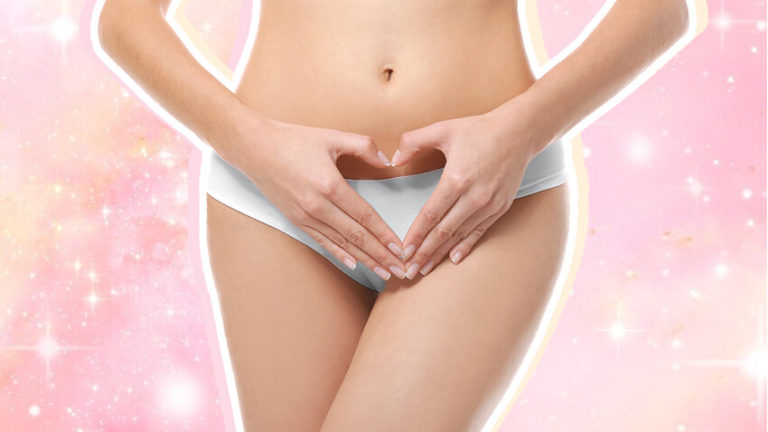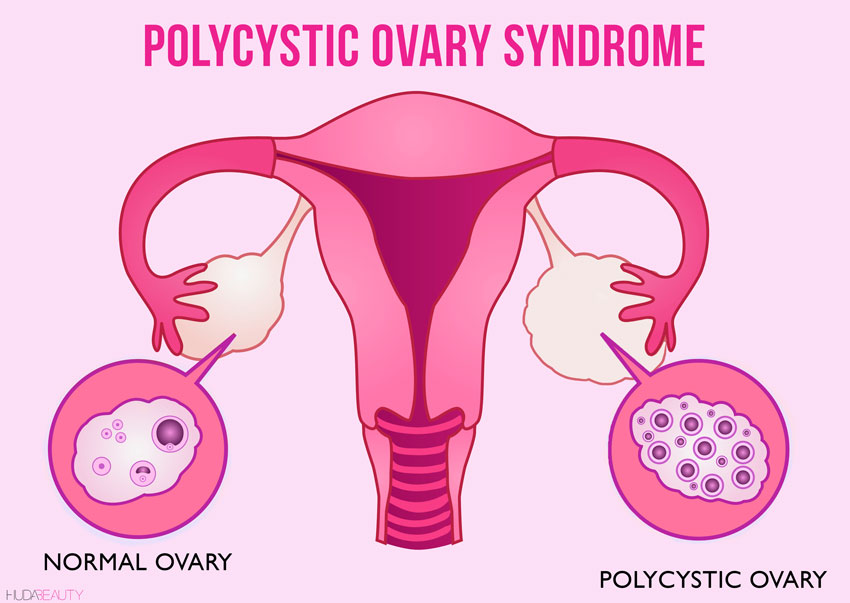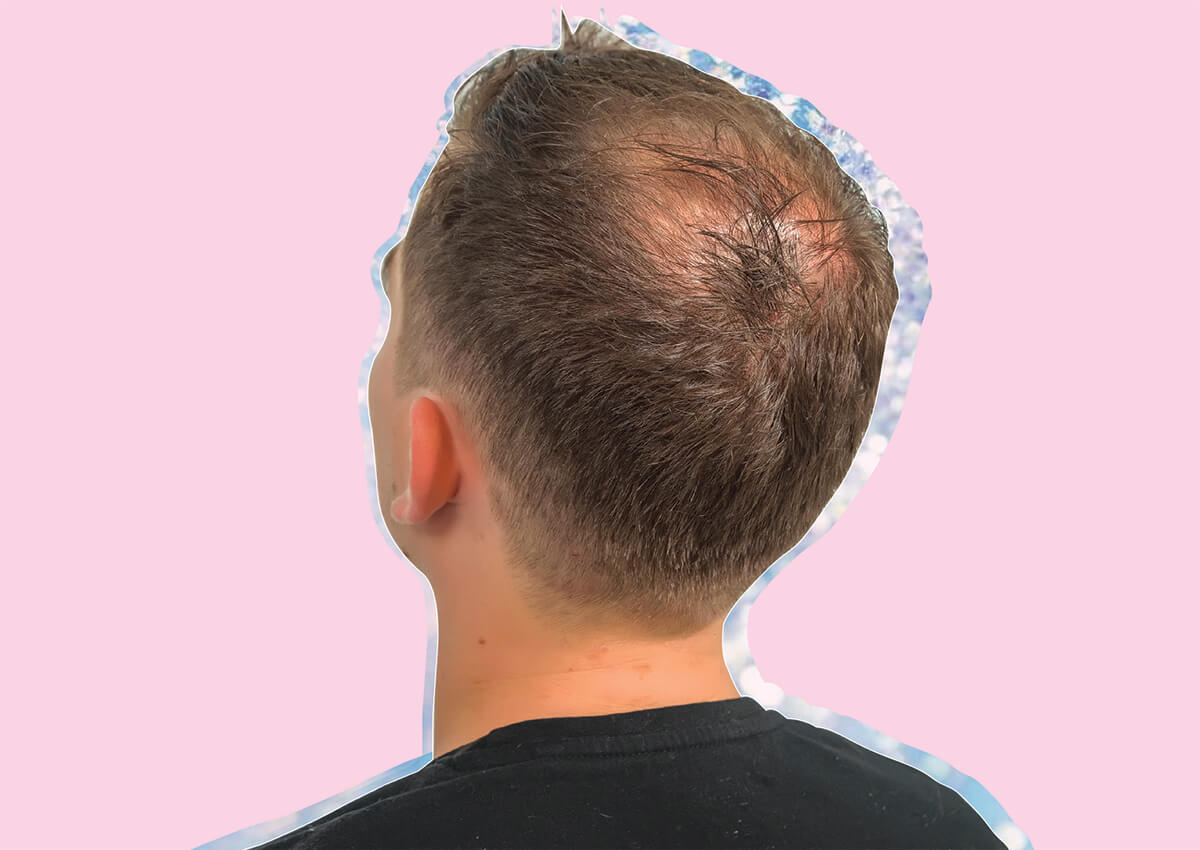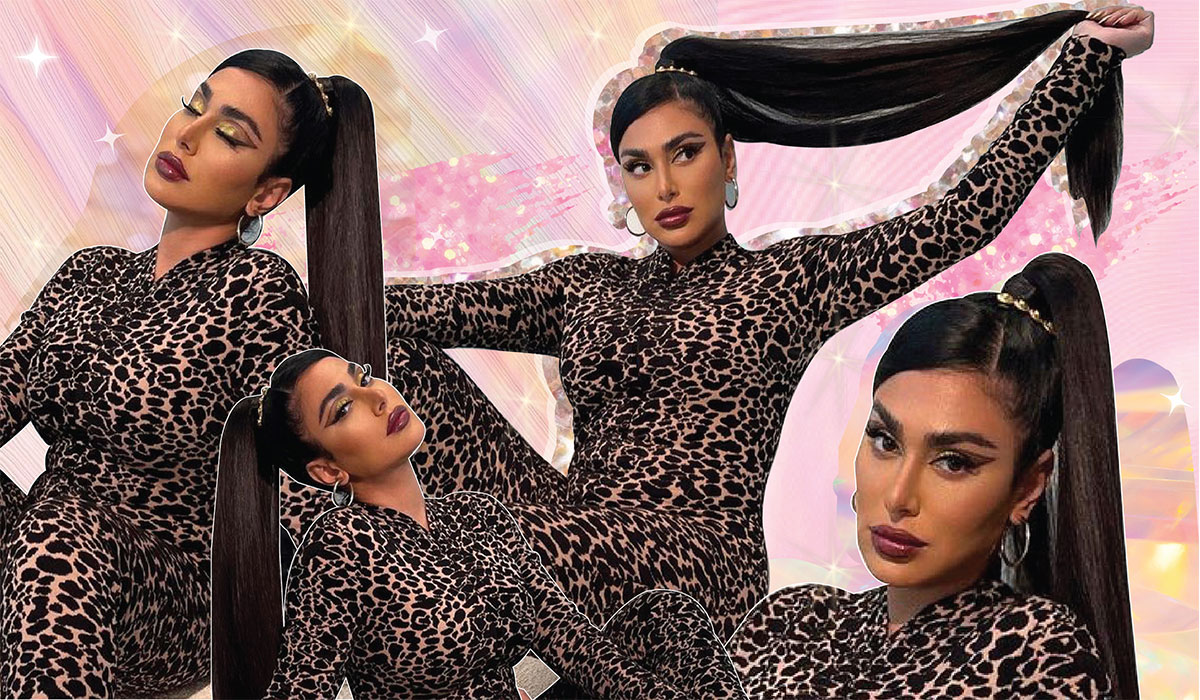Everything You Need To Know About Polycystic Ovaries

Irregular periods, weight gain, anxiety, acne, oily skin, excessive or thinning hair… These are all common symptoms of polycystic ovaries. Yet despite the fact that one in ten women have polycystic ovary syndrome (PCOS), it still remains misdiagnosed due to this long list of symptoms. All of which, are extremely common (or you may not have any symptoms) and, therefore, prevent doctors from connecting the dots and landing at the correct diagnosis.
In fact, it’s estimated that 4-12% of women (who are of childbearing age) suffer from PCOS, which in itself is a confusing statistic! The grey area between 4-12% is because that 8% of women are unaware of their condition. So, as it’s PCOS awareness month, we thought there’s no better time to tell you everything you need to know about PCOS.
For the hormonal 411, we got in touch with Dr. Sherry A. Ross, Women’s Health Expert and Author of She-ology: The Definitive Guide to Women’s Intimate Health. Period., who gave us an outline of what PCOS is and some of the most common symptoms and how to treat them.
What Are Polycystic Ovaries?
PCOS is a hormonal disorder that occurs among women who are of reproductive age (after your first period) when your hormone levels are out of balance. As a result of this imbalance, it can cause many small, fluid-filled sacs to grow inside the ovaries. The word “polycystic” actually means “many cysts.”

The ovary on the left shows the cycle of regular follicles while the ovary on the right has cysts.
What Causes Polycystic Ovaries?
If you’re wondering what causes this imbalance, Dr. Ross says that “No one really knows the cause of PCOS.” However, she assures us what is known, are the effects of the two hormones involved: insulin and androgen. She explained: “There are increases in hormones called androgens and resistance to another hormone called insulin. High androgen levels, mainly testosterone, cause symptoms such as unwanted hair growth all over the body, oily skin, and acne. The hormone insulin controls the sugar or glucose levels in our blood. Therefore, higher blood levels of insulin cause you to feel hungrier which can lead to weight gain and obesity. In women with PCOS, estrogen levels tend to be in the normal range while testosterone is in a higher range than most women.”
 via Giphy
via Giphy
Signs and Symptoms of Polycystic Ovaries
“The long list of symptoms associated with PCOS include irregular periods, excessive hair growth, obesity, oily skin, acne, infertility, depression and anxiety, male-pattern baldness or thinning hair and infertility, all of which are physically and emotionally disruptive,” Dr. Ross told us.
It’s also possible to have one or multiple symptoms, which again explains why it’s often overlooked and misdiagnosed. For example, you may have oily skin yet not experience hair thinning, therefore you wouldn’t automatically assume, nor would a dermatologist, that it was a symptom of PCOS. If you do suspect you have PCOS, begin to log the various symptoms that you’re experiencing and present them to your OBGYN. Your doctor will then conduct a pelvic examination or do a pelvic ultrasound to determine if you have polycystic ovaries.
Posts You'll Love:
How To Treat Polycystic Ovaries
While Dr. Ross says “There’s no cure for PCOS” you can treat each symptom individually, however, this depends on “how disruptive and annoying each one is in your life and daily routine.” We realize that each symptom is accompanied by its own difficulties, which is why Dr. Ross says; “It’s best to include a knowledgeable team of experts, including a gynecologist and nutritionist to help navigate your diagnosis and all the disruption it can cause. The good news is there are great treatments to control the symptoms caused by PCOS and adapting certain lifestyle behaviors to help avoid some of the long term medical diseases.” Here’s a quick breakdown of the PCOS symptoms and the various treatment options:
PCOS Symptom No#1: Irregular Periods
 via Giphy
via Giphy
Dr. Ross tells us that one of the most common symptoms is irregular and ‘troublesome periods.’ To counteract this, she tells us “Hormones, including the birth control pill or progesterone, are used to regulate and balance out your periods. Long-acting reversible contraceptives [semi-permanent contracption] include Depo-Provera, Norplant arm implants and intrauterine devices (IUDs), and are frequently used to control erratic bleeding.”
PCOS Symptom No#2: Unwanted Hair Growth or Hair Loss
There are plenty of treatments to combat unwanted hair growth or on the other side of the spectrum, things you can do to help prevent hair loss. We would know, we’ve tried them all, from laser hair removal to hair vitamins. Dr. Sherry recommends “Spironolactone, which is a medication used to help control excessive hair growth, and “the birth control pill is also helpful to treat unwanted hair,” however, these can also be helpful for treating hair loss from PCOS. If you prefer not to take any medication that could help reduce hair growth, then laser hair removal is a good permanent solution, and there are even at-home laser removal devices.
If either hair loss or hair growth is affecting you, you should discuss with your doctor the best method of treatment.
PCOS Symptom No#3: Increased Hunger
 via Giphy
via Giphy
According to Dr. Ross, “Many women with PCOS have a challenging time losing weight and tend to be overweight,” due to high insulin levels, which result in increased hunger. Yet one of the most impactful treatments of PCOS is a healthy eating regime, that can help control your insulin levels, and therefore other symptoms may subside. Dr. Ross says “Controlling your weight helps control irregular periods, excess hair growth and acne,” and that “seeing a nutritionist is often the best approach to making successful food choices and achieving weight loss. Eating foods that are plant-based, nutrient-rich, fresh and unprocessed along with healthy fats is an ideal diet focusing on a lifelong diet strategy.”
PCOS Symptom No#4: Oily or Acne-Prone Skin
 via Giphy
via Giphy
As our skin is hugely impacted by our hormones, the imbalance can result in acne-prone or oily skin. If acne is a side effect of PCOS, Dr. Ross also suggests some helpful oral treatments such as, “Anti-androgens, antibiotics, and special medicated skin washes are also used to keep the acne under control.” For more details on how your hormones affect your skin read this.
When treating acne or oily skin, it’s also important to ensure your skincare routine is targeted for your skin type. Check out our skincare routine to treat and calm acne-prone skin or our guide for oily skin.
PCOS Symptom No#5: Problems conceiving
Since those with PCOS do not ovulate regularly, Dr. Ross says that “Getting pregnant can be tricky.” However, she assures us “There are a number of medications that you can take to ovulate more regularly. Clomid is the most common medication to get your ovaries ready to cooperate with ovulation and pregnancy. Clomid is given to help you ovulate regularly making the egg available to become fertilized. If Clomid fails, Metformin and gonadotrophins are next on deck to get your ovaries working properly.”
First of all, if you do have any of these symptoms, it doesn’t mean you necessarily have PCOS. However, it might be worth checking in with your gyno so you can either rule out PCOS as a cause of any of the above symptoms (and find appropriate treatment), and if it is PCOS, you can work on a plan to improve the symptoms with your gyno or doctor.
If you’re nervous to go and see your doctor, don’t be. Check out these 9 things your gynecologist wants you to know.























Leave a comment